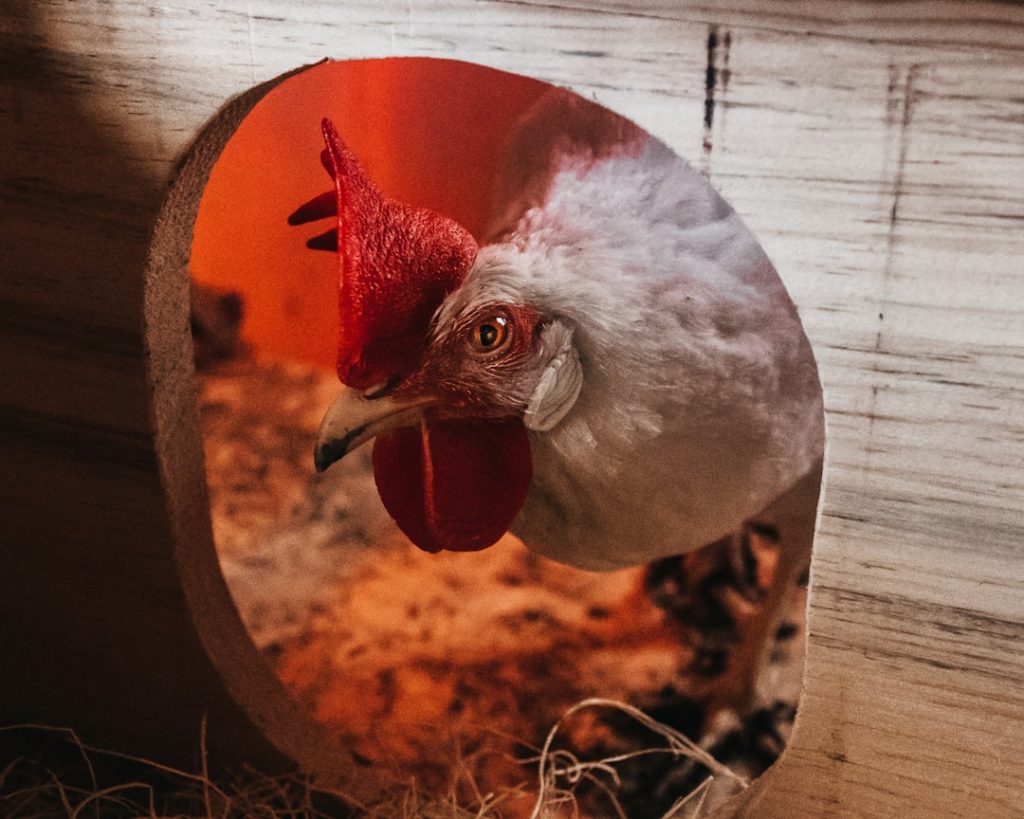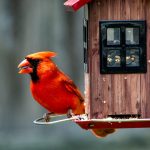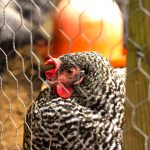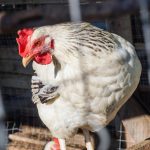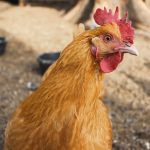Fleas are common external parasites that pose significant health risks to chickens. These small, wingless insects feed on the blood of their hosts, causing irritation, discomfort, and potentially anemia in severe cases. Fleas can also transmit diseases and other parasites, such as tapeworms, to chickens.
Infestations may result in decreased egg production and weight loss, negatively impacting the birds’ overall productivity and quality of life. Warm and humid environments are particularly conducive to flea infestations, making chickens in these areas more vulnerable. Chicken owners should be aware of the potential threat posed by fleas and implement proactive measures to prevent and address infestations.
Understanding flea behavior and their impact on chickens is crucial for developing effective control and treatment strategies to protect the flock. Fleas can rapidly reproduce and spread throughout a chicken coop, necessitating vigilant monitoring by chicken owners for signs of infestation. By recognizing the threats fleas pose to chickens, owners can take appropriate steps to safeguard their birds and maintain a healthy living environment.
Table of Contents
- 1 Identifying signs of flea infestation in chickens
- 2 Implementing preventive measures to keep fleas off chickens
- 3 Natural remedies for treating flea infestations in chickens
- 4 Maintaining a clean and healthy living environment for chickens
- 5 Regular grooming and inspection of chickens for fleas
- 6 Seeking professional help for severe flea infestations in chickens
- 7 FAQs
Key Takeaways
- Fleas can pose a serious threat to chickens, causing discomfort, anemia, and even death if left untreated.
- Signs of flea infestation in chickens include excessive scratching, feather loss, and pale combs and wattles.
- Preventive measures such as regular coop cleaning, using diatomaceous earth, and providing dust baths can help keep fleas off chickens.
- Natural remedies like herbal sprays, essential oils, and garlic can be used to treat flea infestations in chickens.
- Maintaining a clean living environment, providing proper nutrition, and minimizing stress can help keep chickens healthy and flea-free.
- Regular grooming and inspection of chickens for fleas is essential for early detection and treatment.
- Severe flea infestations in chickens may require professional help from a veterinarian or poultry specialist.
Identifying signs of flea infestation in chickens
Behavioral Changes
One of the most common indicators of a flea problem in chickens is excessive scratching and pecking at their feathers and skin. Chickens may also exhibit restlessness and agitation, as well as feather loss and skin irritation in areas where fleas are present.
Physical Signs
Additionally, anemia caused by blood loss from flea feeding can lead to pale combs and wattles in affected chickens. Another telltale sign of flea infestation is the presence of flea dirt, which appears as small black specks on the skin and feathers of chickens. Flea dirt is actually flea feces, which consists of digested blood and is a clear indication of an active flea infestation.
Severe Consequences and Prevention
In severe cases, chickens may also experience decreased egg production, weight loss, and overall poor health due to the impact of fleas on their well-being. Regular inspection of chickens for signs of fleas is essential for early detection and intervention. By being attentive to changes in behavior, appearance, and egg production in their flock, chicken owners can identify and address flea infestations before they escalate. Understanding the signs of flea infestation in chickens empowers owners to take proactive measures to protect their birds from the harmful effects of these parasites.
Implementing preventive measures to keep fleas off chickens

Preventing flea infestations in chickens is key to maintaining their health and well-being. Implementing proactive measures to keep fleas off chickens can help minimize the risk of infestations and reduce the need for intensive treatment. One effective preventive measure is to maintain a clean and well-ventilated coop environment, as fleas thrive in damp and dirty conditions.
Regularly cleaning and disinfecting the coop, as well as removing any accumulated debris and waste, can help deter fleas from establishing a presence in the chicken living space. In addition to maintaining a clean coop, chicken owners can also implement natural deterrents, such as diatomaceous earth or herbal repellents, to discourage fleas from infesting their flock. Diatomaceous earth is a natural powder that can be sprinkled in the coop and nesting boxes to help control fleas and other pests.
Herbal repellents, such as lavender or eucalyptus, can also be used to create a fragrant and flea-repelling environment for chickens. Furthermore, practicing good biosecurity measures, such as limiting exposure to wild birds and rodents that may carry fleas, can help prevent infestations in the first place. By taking proactive steps to keep fleas off chickens, owners can create a healthier and more comfortable living environment for their flock while reducing the risk of infestations.
Natural remedies for treating flea infestations in chickens
When faced with a flea infestation in chickens, natural remedies can be effective for treating the problem without resorting to harsh chemicals or medications. One natural remedy for treating flea infestations in chickens is the use of herbal sprays or dips made from ingredients such as neem oil, garlic, or apple cider vinegar. These natural substances have insecticidal properties that can help repel and kill fleas on chickens without posing harm to the birds or their eggs.
Another natural remedy for treating flea infestations in chickens is the use of diatomaceous earth, a fine powder made from fossilized algae. Diatomaceous earth works by dehydrating and killing fleas upon contact, making it an effective and non-toxic treatment option for controlling fleas in the coop environment. Additionally, regular dust baths with diatomaceous earth can help chickens naturally repel and eliminate fleas from their feathers and skin.
In some cases, incorporating certain herbs into the diet of chickens can also help repel fleas from within. Herbs such as oregano, thyme, and mint contain natural compounds that have insect-repelling properties and can be beneficial for supporting the overall health and resilience of chickens against flea infestations. By utilizing natural remedies for treating flea infestations in chickens, owners can effectively address the problem while minimizing potential risks associated with chemical treatments.
Maintaining a clean and healthy living environment for chickens
Maintaining a clean and healthy living environment is essential for preventing flea infestations and promoting the overall well-being of chickens. Regular cleaning and disinfection of the coop, nesting boxes, and roosting areas are crucial for minimizing the risk of fleas and other pests taking hold in the chicken living space. Removing accumulated debris, waste, and soiled bedding can help create a less hospitable environment for fleas to thrive.
In addition to regular cleaning, providing adequate ventilation and airflow within the coop can help reduce moisture levels and discourage flea infestations. Proper ventilation helps maintain a dry and comfortable environment for chickens while minimizing conditions that are conducive to flea proliferation. Furthermore, ensuring that the outdoor run area is well-maintained and free from overgrown vegetation can help reduce potential hiding spots for fleas and other pests.
Maintaining a healthy living environment for chickens also involves providing nutritious feed, clean water, and access to dust baths for natural grooming. A balanced diet rich in essential nutrients supports the overall health and resilience of chickens against potential pest infestations. Additionally, dust baths with diatomaceous earth or herbal additives can help chickens naturally repel and eliminate fleas from their feathers and skin while promoting good hygiene.
By prioritizing cleanliness, ventilation, and proper care practices, chicken owners can create a clean and healthy living environment that minimizes the risk of flea infestations while supporting the well-being of their flock.
Regular grooming and inspection of chickens for fleas
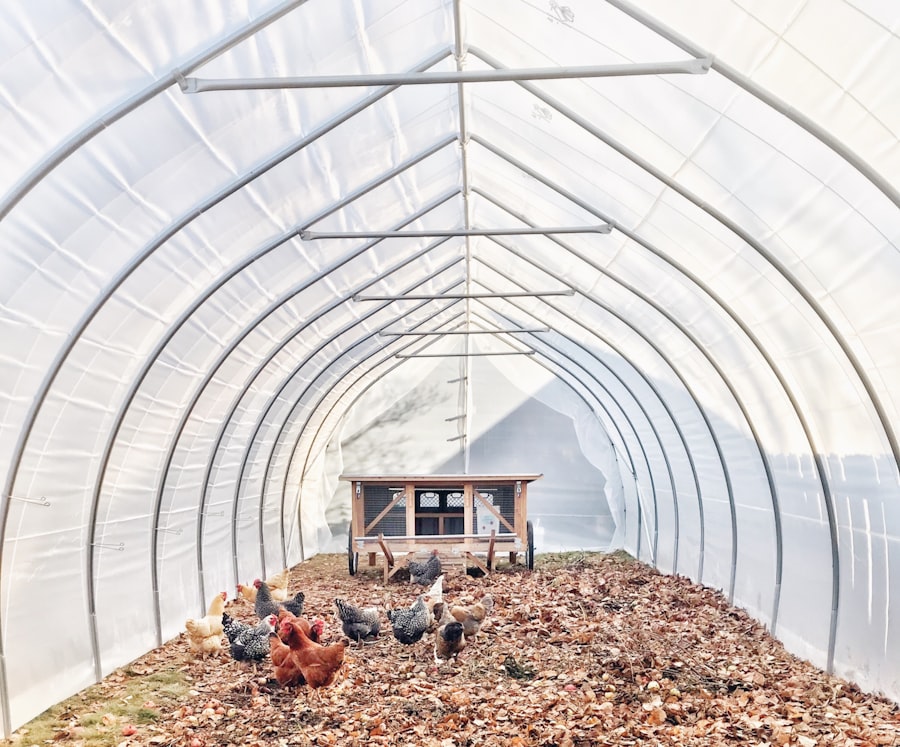
Visual Observation and Physical Inspection
Regularly observing the flock allows owners to identify any changes in behavior or physical appearance that may indicate a potential flea problem. In addition to visual observation, physically inspecting the feathers and skin of chickens is essential for detecting signs of flea infestation. Parting the feathers and examining the skin for signs of irritation, redness, or flea dirt can help identify areas where fleas may be present on the birds.
Early Detection and Prevention
By conducting thorough inspections regularly, chicken owners can catch flea infestations early on before they escalate into more significant problems. This enables prompt action to be taken to eliminate the fleas and prevent further infestation.
Promoting Good Hygiene through Grooming Practices
Grooming practices such as providing dust baths with diatomaceous earth or herbal additives can also help chickens naturally repel and eliminate fleas from their feathers and skin while promoting good hygiene. Dust baths allow chickens to engage in natural grooming behaviors that help keep their feathers clean and free from pests. By incorporating regular grooming and inspection into their care routine, chicken owners can actively monitor their flock for signs of fleas while promoting good hygiene practices.
Seeking professional help for severe flea infestations in chickens
In cases of severe flea infestations in chickens, seeking professional help may be necessary to effectively address the problem. Professional assistance from a veterinarian or poultry health expert can provide valuable guidance and support for implementing targeted treatment strategies to control flea infestations in the flock. Veterinarians can conduct thorough examinations of affected chickens, diagnose the extent of the infestation, and recommend appropriate treatment options based on the specific needs of the flock.
Additionally, professional pest control services may be required to address severe flea infestations within the coop environment. Pest control experts have the knowledge and resources to effectively eliminate fleas from the living space while minimizing potential risks to the health of chickens. They can also provide guidance on preventive measures to reduce the risk of future infestations and maintain a healthy living environment for the flock.
In cases where severe flea infestations have impacted the overall health and productivity of chickens, professional help can offer comprehensive solutions for restoring the well-being of the flock. By seeking professional assistance when faced with severe flea infestations, chicken owners can access specialized expertise and resources to address the problem effectively while safeguarding the health of their birds. In conclusion, understanding the threat of fleas on chickens is essential for implementing proactive measures to prevent infestations and protect the well-being of the flock.
By identifying signs of flea infestation early on, implementing preventive measures, utilizing natural remedies for treatment, maintaining a clean living environment, practicing regular grooming and inspection, and seeking professional help when needed, chicken owners can effectively manage flea infestations while promoting the health and resilience of their birds. Prioritizing proactive care practices helps create a comfortable living environment that minimizes the risk of flea infestations while supporting the overall well-being of chickens.
If you’re looking for more information on caring for poultry, you might be interested in this article on how to care for goslings. It provides valuable tips and advice for raising healthy and happy geese.
FAQs
What are fleas and why are they a problem for chickens?
Fleas are small, wingless insects that feed on the blood of animals. They can be a problem for chickens as they can cause irritation, discomfort, and potential health issues for the birds.
How can I prevent fleas from infesting my chickens?
To prevent fleas from infesting your chickens, it’s important to keep their living area clean and dry. Regularly clean and remove any bedding, droppings, and debris from the coop and surrounding areas. Additionally, consider using natural repellents such as diatomaceous earth or herbs like lavender and mint to deter fleas.
Are there any natural remedies to keep fleas off chickens?
Yes, there are several natural remedies to keep fleas off chickens. Diatomaceous earth, a fine powder made from fossilized algae, can be sprinkled in the coop and nesting boxes to help control fleas. Additionally, planting herbs like lavender, mint, and rosemary around the coop can act as natural repellents.
Can I use chemical flea treatments on my chickens?
It is not recommended to use chemical flea treatments on chickens, as these products may be harmful to the birds and their eggs. It’s best to opt for natural remedies and preventative measures to keep fleas off chickens.
What should I do if my chickens already have fleas?
If your chickens already have fleas, it’s important to take action to treat the infestation. You can use natural remedies such as diatomaceous earth and herbal sprays to help control the fleas. Additionally, consider consulting with a veterinarian for further advice and potential treatment options.
Meet Walter, the feathered-friend fanatic of Florida! Nestled in the sunshine state, Walter struts through life with his feathered companions, clucking his way to happiness. With a coop that’s fancier than a five-star hotel, he’s the Don Juan of the chicken world. When he’s not teaching his hens to do the cha-cha, you’ll find him in a heated debate with his prized rooster, Sir Clucks-a-Lot. Walter’s poultry passion is no yolk; he’s the sunny-side-up guy you never knew you needed in your flock of friends!

